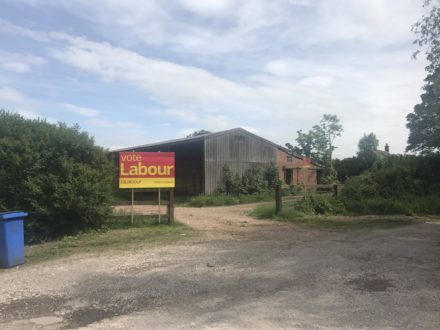

Ahh Brexit. That super-fun constitutional debate once tore apart only the Tories but is now threatening to do the same to our country – or at the very least grind politics to a halt for the next few years as its sheer size dominates the legislative program.
The Tories are in a hole – for many reasons – and Theresa May seems likely to limp on as their least worst option for leader and prime minister. While Labour looks in a strong position to win the next election, there is a much bigger question which seems to have been mostly neglected – how can a Labour government enact socialist policies if the country’s coffers have been run completely dry by Tory-Brexiteering incompetence?
Getting a “good” Brexit, or at least a solution to the question of EU withdrawal, and which doesn’t lead to an economic downturn, must be Labour’s number one priority for the coming years. But what does a decent result look like?
One solution being discussed increasingly in the labour movement is of staying in the single market. Chuka Umunna proposed it by tabling an amendment to the Queen’s Speech, and three frontbenchers were subsequently sacked for voting for it. At the weekend Jeremy Corbyn ruled staying in the trading bloc, Barry Gardiner said yesterday that a Norway-style deal could leave Britain as a “vassal state” while Carwyn Jones, Wales’ first minister, urged Corbyn to reconsider.
Among trade unions, the view seems fairly clear. Some in the TUC support staying in the single market as an option – coupled with action on free movement – and Manuel Cortes, the general secretary of the TSSA, has gone further, calling for Labour to restart the Remain fight. Cortes, an early backer of Corbyn and Momentum, could hardly be accused of being on the right of the party.
It is unfair to say there’s nary a sliver between the “Lexit” position and that of an ardent Kipper but, as time goes on, the need to put clear water between Labour’s stance and that of the Tories becomes ever more important – not just to differentiate ourselves politically, and stop a resurgent Lib Dems attacking to our centre, but so as to stave off a recession so bad it could dwarf that of 2008-09.
Let’s look at the feasible Brexits. To get full access to the single market, without being a member of the European Economic Area, like Norway, would presumably be pretty expensive. To get that without accepting free movement – at least to a decent degree – would be even more so.
So say we don’t opt for membership. If we get partial access, on a sector by sector deal, trade will suffer. The risk of us crashing out without a deal is also very real – and if there’s one thing that robs a country of investment from business, it is uncertainty. For instance, if London can’t win full “passporting” rights for the financial services sector – which provides 30 per cent of the country’s tax receipts – then as many as 230,000 City of London jobs could be at risk, according to the chief executive of the London stock exchange. That is phenomenally significant. The minutiae of policy disagreements would be the least of our worries were this to happen.
That London provides as much to the exchequer as the next 37 British cities combined of course opens up other bigger questions, but in the medium term, how would we pay for better education funding, our NHS or infrastructure spending to correct it without this revenue? The redistribution and public investment which are part of socialism become a lot harder if the economy is in a real hole. And the same points and similarly damning numbers could be pointed to on car manufacturing in Sunderland or education across Britain.
This is no project fear, though it is damn scary. These are real issues that Labour must confront.
We have had a Labour government during a financial downturn before – with socialists who had lived through total poverty left with their hands tied when they were in power because of the economic realities. Ramsay MacDonald’s second minority government was dogged by a stagnant economy and rising unemployment, and Britain’s first female cabinet minister and privy councillor Margaret Bondfield was one of those who had to deliver spending cuts. This from a woman who spent most of her childhood fearing the spectre of the workhouse and worked extreme hours as a shop worker in the late 19th and early 20th centuries shows that it wasn’t something that cabinet wanted to do – but they felt they had to. And Bondfield was vilified for it.
Politically, if Labour is seen to be going down the same Brexit path as the Tories, and it leads to a colossal recession, the idea that we wouldn’t also get punished for it is implausible. With the Lib Dems under the leadership of Vince Cable – undoubtedly a savvier politician than Tim Farron – their more nuanced presentation of the second referendum argument will no doubt start to get greater traction – and not just amongst Remainers.
I fear hugely for what our country is moving towards. And, as someone who is active in Labour politics, I didn’t get involved to sit by the wayside as the most historically significant move for a generation is afoot. Labour needs to have an answer to the economic risk of Brexit if it can ever hope to govern for a more just Britain. And if it means being bold, and moving from a position of all things to all men, then Labour needs to be open to changing its stance.



More from LabourList
Exclusive: Poll shows Starmer more trusted than PM on Middle East crisis
Revealed: Poll shows 1 in 4 Tory voters says Rayner faces ‘smear campaign’
‘Ignore the noise – the soft left is alive and well in Open Labour and beyond’